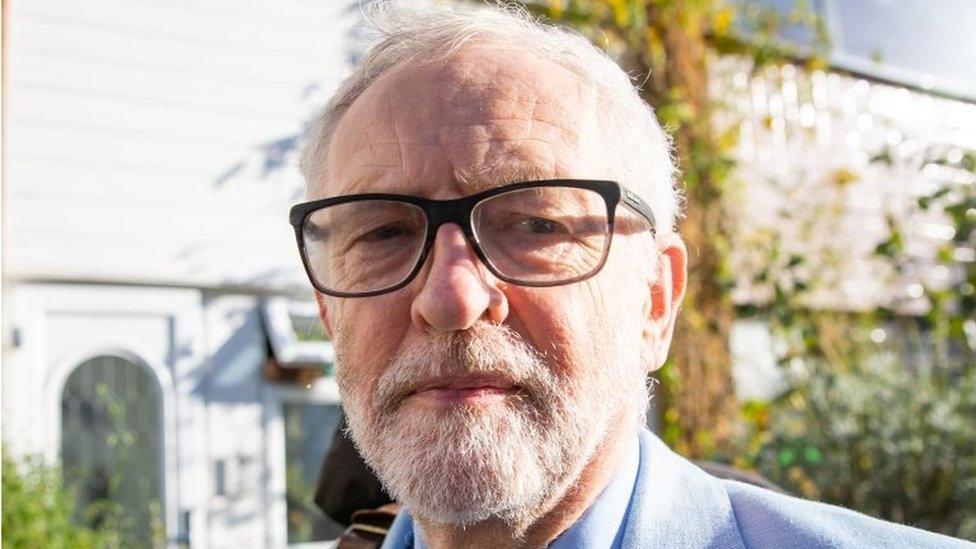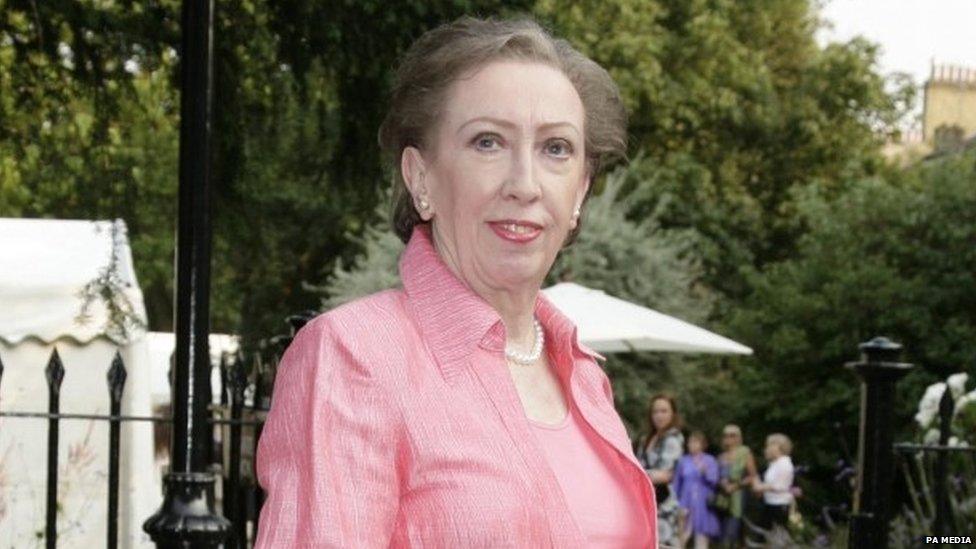Labour Party: Corbyn backers walk out of meeting in suspension row
- Published

Members of Labour's ruling body loyal to Jeremy Corbyn have walked out of a meeting in protest over his continued exclusion from the parliamentary party.
The 13 representatives of the National Executive Committee said Sir Keir Starmer's decision not to re-instate the whip to Mr Corbyn in a bitter anti-Semitism row was a "factional" move.
Mr Corbyn has been urged to apologise for remarks downplaying the extent of anti-Semitism when he was leader.
His lawyers are challenging the ban.
Tuesday's row reflects continuing upheaval at the top of the party over Mr Corbyn's recent suspension from Labour.
The NEC agreed to lift the suspension last week after he issued a statement distancing himself from his previous claims that anti-Semitism within the party when he was leader was overstated for political reasons.
The NEC is the guiding body for the Labour Party, making key decisions about the party's objectives.
But Sir Keir has declined to re-admit him to the parliamentary party, meaning he continues to sit as an independent in the House of Commons.
Labour's chief whip Nick Brown has written to Mr Corbyn urging him to make a full and unreserved apology for his earlier comments, which he made after the Equalities and Human Rights Commission found the party had broken the law over its handling of anti-Semitism claims.
'Legitimate voice'
After their mass walkout from Tuesday's virtual meeting, the 13 representatives, including former MP Laura Pidcock, issued a statement saying they had "decided not to remain in the NEC meeting today in order to show very clearly how factional the decisions of the current Labour leader have become".
They added: "We will be returning to future NEC meetings to be the legitimate voice of the membership."
In a letter to the NEC's general secretary David Evans, the group said Tuesday's election of veteran MP Dame Margaret Beckett as chair of the ruling body was a breach of protocol, suggesting the role should have typically passed to the current vice-chair Ian Murray.

The former foreign secretary is the longest-serving member of the NEC
They suggested the party leadership had "lobbied for" Dame Margaret because Mr Murray, who is a senior member of the Fire Brigades Union, had been one of those who had criticised Sir Keir's for his decision to withhold the whip from his predecessor.
However Jon Lansman, founder of the pro-Corbyn Momentum group, advised his fellow left-wingers to "get over themselves".


Labour sources insisted that Margaret Beckett's election was the result of democracy not factionalism.
And it demonstrated that, following recent elections, the party leadership now enjoys majority support on the national executive.
But it also provides further evidence of an increasing rift between supporters of the current leader and those of the previous incumbent.

Dame Margaret, a former foreign secretary who been a Labour MP since 1974, succeeds TSSA union official Andi Fox in the role.
Alice Perry, a London councillor seen as loyal to Sir Keir, was elected vice-chair.
Sir Keir won the leadership of his party by a wide margin in April but his grip on the NEC remains more tenuous.
He has won the body's backing for his reforms so far - but sometimes by very tight margins.
In last week's elections of nine constituency representatives, the "Grassroots Voice" candidates - who represent the left and are closer to the former leader Jeremy Corbyn - won five places.